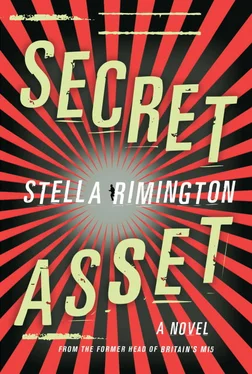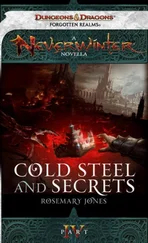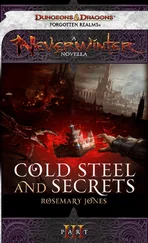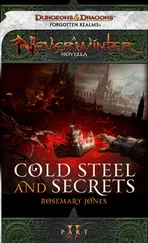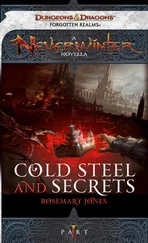The non-fiction books included three dull-looking tomes on the future of the EU. There were almost two shelves on terrorism, and several recent volumes on Al Qaeda. So what? thought Liz. I’ve got some of these myself. I’ve also got a copy of Mein Kampf, but that doesn’t make me a Nazi sympathiser. These were the tools of his trade.
She noted that there were very few books about Ireland. The Collected Poems of William Butler Yeats, and a battered Shell Guide to Ireland. Nothing political; no accounts of the recent history of the IRA.
And then she saw it. Tucked into the end of one shelf, a thin blue volume: Parnell and the English Establishment. She didn’t need to open it to know the author’s name. Liam O’Phelan, Queen’s University Belfast.
Liz was growing frustrated by the absence, throughout the flat, of anything personal—correspondence, mementoes, photographs. There wasn’t even a rug or vase to indicate Tom had just spent four years in Pakistan. Like his office, his flat was overpoweringly impersonal. Deliberately, thought Liz. It seemed likely that Tom had performed his own version of the sweep Bernie and Dom were conducting, scouring the flat and removing anything that might flesh out the bare bones of his past, anything that might indicate what sort of man he was—and what he was planning to do. Though he had forgotten O’Phelan’s book.
In the study, Liz was surprised to find the filing cabinet unlocked, but less so when she browsed through what it held—bills in the top drawer, neatly filed by utility and credit card. The second drawer held tax statements, and a protracted correspondence with the Inland Revenue about Tom’s marriage-allowance claim in the year he was divorced. Bank statements filled the third drawer, and the bottom one was empty.
As she took out the pile of credit card statements, she noticed that the top one was very recent. It all seemed straightforward until she came to the last entry on the page, the Lucky Pheasant Hotel, Salisbury: £212.83. Looking at it in surprise, she realised its date was the weekend of her mother’s biopsy—the weekend Tom had called at Bowerbridge. So he had dinner in Salisbury after all, she thought, remembering his invitation. But £212.83—for dinner? He must have entertained a large party. No. Much more likely, he’d stayed there.
So much for those friends with the farm off the Blandford road, thought Liz. No wonder Tom had been so vague about the location—the farm probably didn’t exist, any more than his friends did. Tom had been staying all along in the Lucky Pheasant. Why? What was he doing there?
Seeing me, thought Liz. Popping by, popping in, then after a long candlelit supper in the restaurant of the Lucky Pheasant, popping the “How about it?” question. What was she meant to have done? Fall into his arms, and then the feather pillows of his four-poster bed?
That must have been the plan, thought Liz, designed to put her off the path she’d been investigating. He had hoped she would be easily distracted by a new passion for him; that must have been his thinking. The arrogant bastard, thought Liz. Thank God I said no. Now I better go and talk to the woman who didn’t.
It was all very civilised. The Delft cups and the small Viennese biscuits on a china plate, the strong coffee, poured with a kind of Mittel European courtesy, and in the background classical music softly playing. It was so genteel that Liz wanted to scream.
Time seemed to have stood still, yet a furtive glance at the ormolu clock on the mantelpiece told Liz that she had been there precisely eleven minutes. Sipping her coffee, Margarita cocked an ear. “Oh dear, I forgot the radio. Do you mind the noise?”
“Not at all. It’s Bruckner, isn’t it?”
Margarita looked pleased. “You must like music,” she said. “Do you play?”
Liz gave a self-deprecating shrug. “Piano. I wasn’t very good.” She had passed Grade Eight and been competent enough, but since then she had lost the habit of playing. There was a piano at Bowerbridge, but even during her recent convalescence there, Liz had hardly touched the keys.
“We could talk all day about music, I suspect,” said Margarita, nursing her cup, “but that is not why you are here.”
“I’m afraid not.”
Margarita looked at her searchingly. “It’s Tom again, isn’t it? The young woman who came to see me before—she said it was just a formality. But it can’t be, can it? Not if you’ve come as well.”
“No, it’s not.”
“Is he in trouble?”
“Yes, I think he is. Have you heard from him?”
“No. I told the woman before I haven’t spoken to Tom since he went to Lahore. What has he done?”
“Disappeared, for one thing. We can’t find him anywhere. We think he may be helping some people. People who want to do harm.”
“What kind of harm?”
“That’s what we don’t know—and why we need to find him. I’ve been to his flat, but there weren’t many clues.”
“He didn’t like possessions. He called them clutter,” said Margarita with a hint of a smile. She pointed to the room around them, full of furniture and paintings and bibelots. “As you can see, we couldn’t have been more different.”
“Was that a problem?”
“No,” said Margarita a touch edgily. “We worked it out.” She smiled. “I was allowed certain areas for my things; others were strictly off-limits.”
“A negotiation?” asked Liz.
“Not really,” sighed Margarita. “More like capitulation on my part. It was usually that way. We got married here, for example, even though my parents were both alive and living in Israel. They wanted the wedding there. But Tom insisted.”
Margarita stood up and walked over to one of the side tables, covered in framed photographs. Most of them were of her family in Israel—one showed an older man in uniform, smiling as he squinted into the sun—but tucked further back was a picture in a silver frame which she handed to Liz. “I’m afraid this is my wedding album.”
The photograph had been taken in front of the Marylebone Register Office—which Liz recognised from newspaper photographs of celebrities. Tom and Margarita stood on the steps, arm in arm, facing the camera. What was immediately striking was the difference in their expressions: Margarita, stunning in a pale ivory silk jacket, beamed, her delight quite apparent; Tom, on the other hand, stood in a dark suit with a buttonhole carnation, staring emotionlessly at some point behind the camera. He looks like he’s just been sentenced to six months, thought Liz, handing back the photograph. “You look very happy,” she said diplomatically. “Who was best man?”
“He didn’t have one,” said Margarita, and the words spoke for themselves. She added dryly, “Our driver that day was the only witness. He took the photograph, too.”
“Weren’t your parents there?”
“No. Tom made it clear he didn’t want them. Naturally my mother was very upset.”
Margarita remained standing, and moved to the window where she stared out at the rooftops across the street. She wore a grey wool sweater which emphasised her full figure; she was tall, Liz realised, and must have caused quite a stir in the orchestra world. It’s not that she is no longer beautiful, thought Liz; it was rather that her beauty was now suffused by a haunting sadness.
“So Tom didn’t get on with your parents?”
“He only met them a few times, but it was all right. I’d worried, since he was an Arabist—I thought my father might think he was anti-Semitic. My father lost all his family in Poland, you know, during the War, so he was sensitive about such matters.”
Читать дальше
